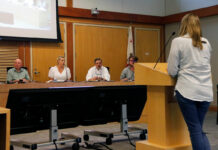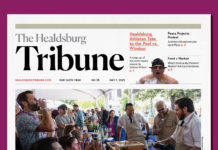It’s hard for me to imagine what it is like to be a young black man and to be the object of suspicion, fear and harassment for being myself, for being young and black. Our president says he knows what it’s like and that Trayvon Martin, the black teenager killed by a white neighborhood watch volunteer could have been him when he was a teenager. The boys assailant, George Zimmerman, was tried and acquitted and as far as I’m concerned, that is legally the end of the matter. But I can’t help wondering what it was like for Trayvon Martin, what it was like for Barack Obama, and what it was and is like for millions of young black men.
I grew up in Napa. Napa was all white. Vallejo, 10 miles to the south had and has a large black population. It wasn’t until I was in high school that it dawned on me that that the fact that there were no black people in Napa was not an accident. There was a color bar enforced mostly by realtors at the behest of the city fathers. As a child and adolescent I had no black friends or enemies. The first black man I got to know was Larry Paul. My father was a machinist at Kaiser Steel in Napa. The company gave summer jobs to college students who were sons of full time employees. It was their way of helping us pay for our college education. Larry Paul was a welder and in the summer of 1964 I was his helper. He lived in Oakland and commuted to Napa. He was a devout Christian and we normally said grace together before we ate lunch. I called him Mr. Paul until he said, “Marvin, It’s Larry.” I said, “OK Larry, but you call me Pink,” which is my family nick name.
One Monday after grace Larry said, “Well, I visited your fair city for the first and last time on Friday after work.” He told me that he decided to go to a bank in Napa after work to cash his check. He was planning to take his family on a weekend camping trip and needed some cash. The banks in Oakland would be closed by the time he got home and obviously in 1964 there were no ATMs. He said that when he walked into the bank in Napa it got real quiet, and he could tell that he was being watched very closely. He said he just kept on walking and went right out the door at the opposite end of the building.
I felt ashamed and apologized. I said, “Please forgive us.” He said, “It’s OK, Pink, I’m sure Napa would be a nice town except for all those white people.” And then he winked at me and said again, “It’s OK.”
But I knew then and I know now that it was not and is not OK.
I went to U C Santa Barbara, which had very few black students. I graduated in 1966, married Bonnie, and we went to New York City. The seminary I attended was in the Chelsea Clinton neighborhood of Manhattan. When the seminary was founded in the mid-19th Century it was an area of large country estates. In the 1950’s it was Irish becoming Puerto Rican. It was called Hell’s Kitchen. Think Westside Story. By the time Bonnie and I arrived in 1966, most of the Irish had moved to New Jersey and on our street most of the Anglos were faculty, students or staff of the seminary and everyone else was Puerto Rican. The only black people I got to know were the members of St Alban’s, New Brunswick, New Jersey. St Alban’s was my Sunday field work parish and on most Sunday’s I was the only white person there. It was a very traditional, high church parish and everyone, including the teenagers, treated me with great respect because I was going to be a priest. For them this far outweighed the fact that I was white.
I graduated, came home, served for three years in Calistoga and 35 years here in Healdsburg. I have a grandson, adopted, whose birth father is black and birth mother white. I have a son-in-law whose mother is white and father black. I hardly ever think about it. Stuart is a faithful husband and loving father. He’s also a Los Angeles police officer and one of the most straight arrow guys I’ve ever met. Zachary is, well, my grandson. If you’re a grandfather that’s all that needs to be said. All this is to say that my personal knowledge of what it’s like to be a young black man is next to non-existent.
Martin Luther King Jr. preached a sermon about forgiveness. The first point he made was that only forgiveness can heal the wounds, emotional and physical, inflicted by unjust oppression. The second point was that the costly gift of forgiveness can only be given by those who have suffered oppression. So, out of my ignorance and complicity, I say to my black brothers and sisters, and especially to young black men what I said to Larry Paul as we were having lunch at Kaiser Steel, Napa, back in l964, “I’m sorry, please forgive me.”
Canon Marvin Bowers is a retired clergyman and may be reached at fr************@***il.com.







